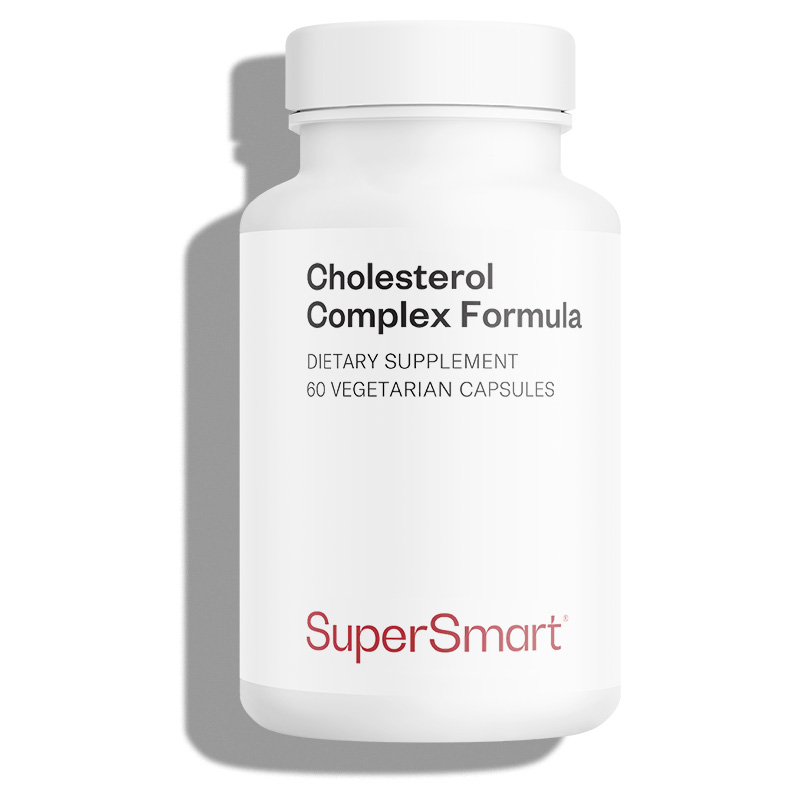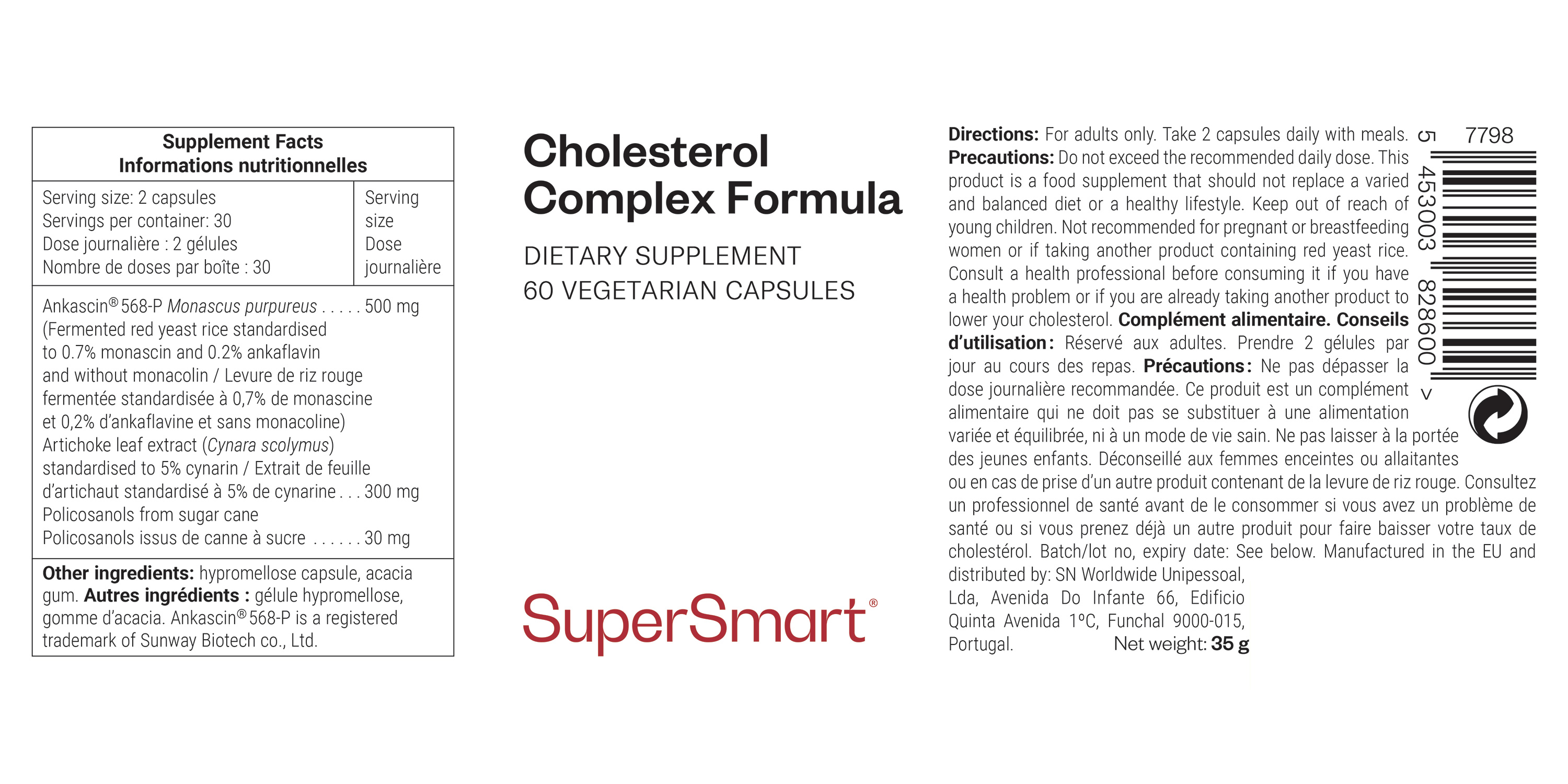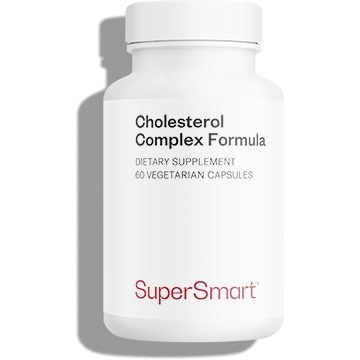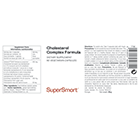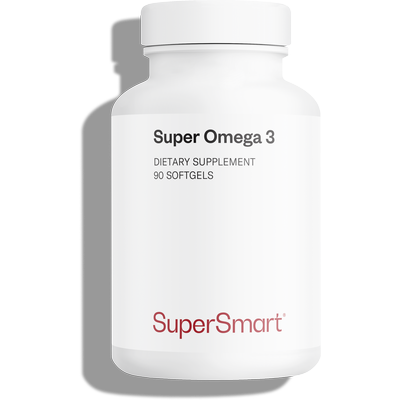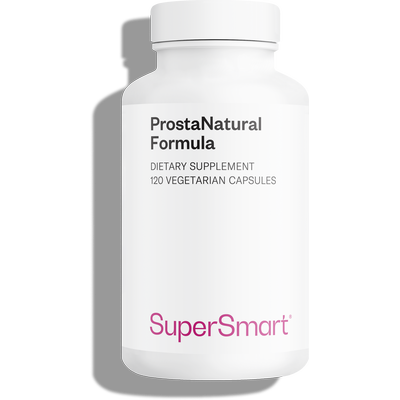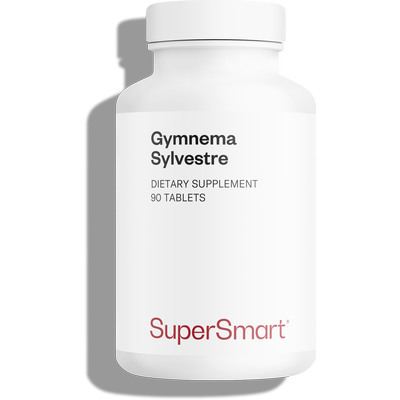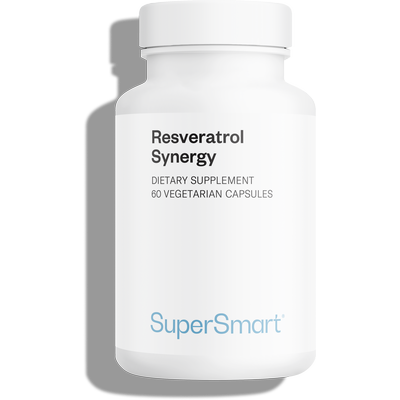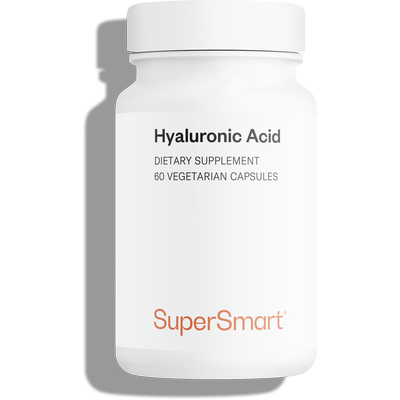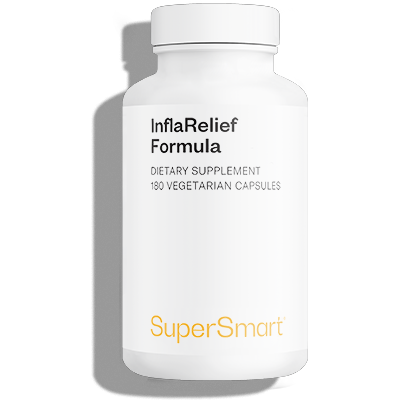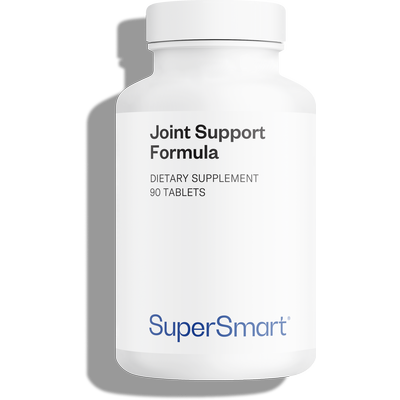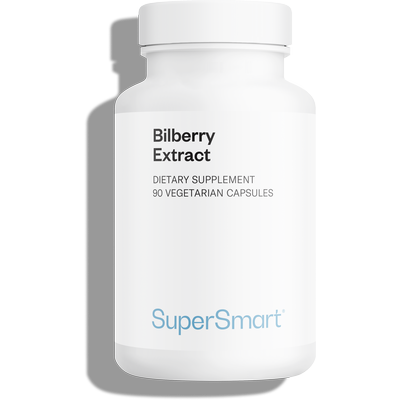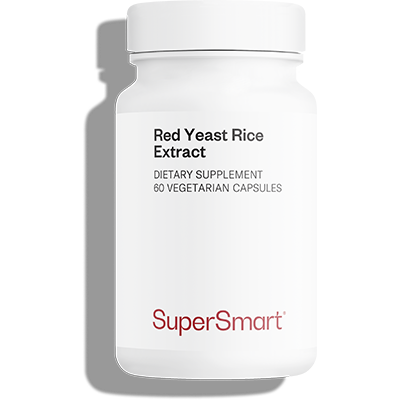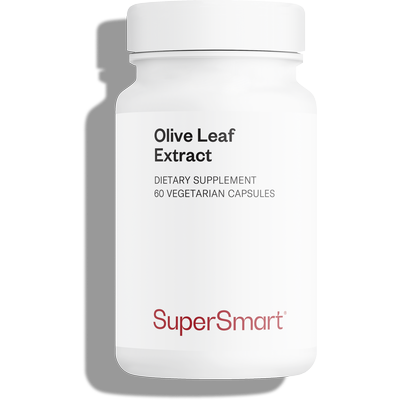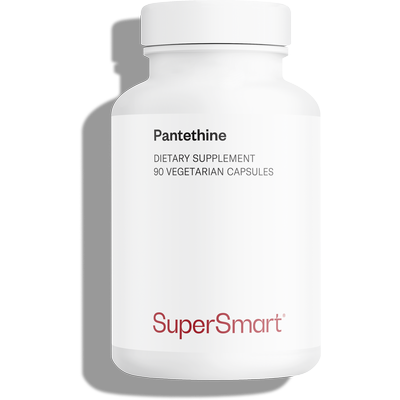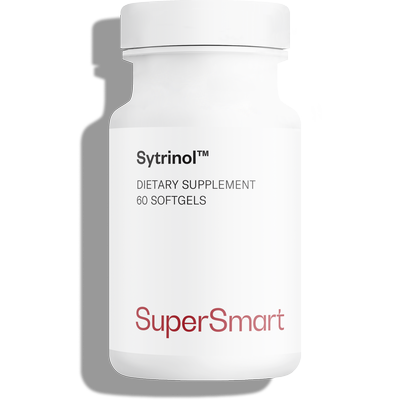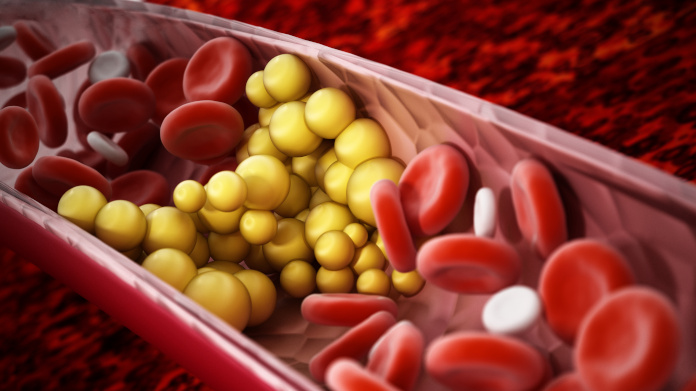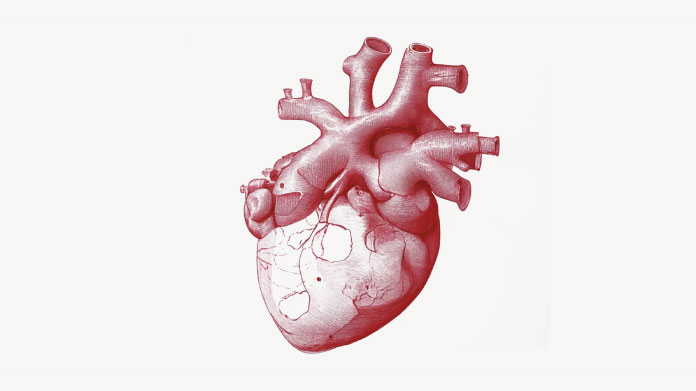Complete your selection
Cholesterol Complex Formula is the best synergistic dietary supplement against cholesterol and triglycerides.
One of its key ingredients, Ankascin® 568-P, is a fermented red yeast rice that has been clinically studied and contains no monacolines.
This makes the supplement an essential part of our cholesterol-fighting product category.
What are the composition and benefits of the best dietary supplement against cholesterol?
Cholesterol Complex Formula is made up of 3 carefully selected ingredients:
- Ankascin® 568-P, a fermented red yeast rice (Monascus purpureus) that differs from traditional red yeast rice in its absence of monacolins, natural statins that are sometimes undesirable. Four randomised, double-blind clinical studies have evaluated the effects of this ingredient. One study of 39 participants taking 440 mg/d showed a reduction in total cholesterol of 11.9% and LDL ('bad cholesterol') of 19% in 4 weeks, with an increase in HDL ('good cholesterol') (1). The 3 other clinical studies, conducted with a dose of 880 mg/d, gave conclusive results on triglycerides, blood sugar and blood pressure (2-4). Preliminary studies also suggest a reduction in body fat (including visceral fat) and factors associated with neurodegenerative disorders (5-6). Ankascin® 568-P also has an excellent safety profile (7). The ingredient is standardised to 0.7% monascin and 0.23% ankaflavin, potent bioactive compounds thought to act through a unique mechanism that activates the transcription factors PPARɣ and Nrf2, promoting metabolic regulation, insulin sensitivity and the reduction of oxidative stress;
- artichoke extract, which several meta-analyses confirm helps to regulate blood lipid levels (LDL, cholesterol and triglycerides) (8-10). It acts by limiting hepatic production of cholesterol, promoting its elimination via the bile and protecting LDL from oxidation, thereby reducing the build-up of deposits in blood vessels. Note that our extract is derived from the leaves of artichoke stems, which are particularly rich in cholesterol-lowering active ingredients, rather than from the small, fleshy leaves that are typically consumed;
- policosanols from sugar cane. These are fatty alcohols studied for their potential ability to reduce total cholesterol and triglycerides while increasing HDL. Their mode of action is thought to involve inhibition of HMG-CoA reductase, a key enzyme in cholesterol synthesis. Several studies on animal models and clinical trials have been devoted to them (11-14).

The 6 strengths of our monacolin-free red yeast rice supplement
Our anti-cholesterol food supplement has 6 main strengths:
- the absence of monacolins: Ankascin® 568-P differs from classic red yeast rice in that it contains no monacolins, which are plant statins. Choosing this monacolin-free formulation avoids the side effects sometimes encountered when taking statins (such as muscle pain or liver problems);
- an innovative, clinically studied ingredient: the innovative ingredient Ankascin® 568-P also stands out for its tested efficacy on cholesterol, LDL and HDL, observed in the human clinical studies mentioned above;
- complementary effects: unlike traditional red yeast rice, Ankascin® 568-P is also being studied for its potential ability to reduce triglycerides, blood sugar and blood pressure, not to mention its possible effects on cognitive health;
- a tailor-made dosage: the Ankascin® 568-P content is exactly the same as that used in the clinical study showing its effects on cholesterol;
- optimal synergy: the formula combines the best-known natural compounds in the field, including fermented red yeast rice, artichoke extract and policosanols;
- vegetable capsules: finally, the supplement is packaged in vegetable-based HPMC capsules, with acacia gum, a 100% natural compound, being the only excipient.
What is in Cholesterol Complex Formula
Any questions?
Many natural ingredients claim to be the most powerful anti-cholesterol agents.
At the top of the podium, red yeast rice can be described as the best natural solution already tested, in view of its action on lipid metabolism.
Its monacolin-free version, like the one included in Cholesterol Complex Formula, has the advantage of being much better tolerated.
Other compounds can also be cited in its wake:
- policosanols (mainly derived from sugar cane), which help to reduce LDL by acting on its metabolism in the liver;
- Artichoke, which stimulates bile secretion, helping the liver to eliminate cholesterol;
- phytosterols (found in sesame seeds, rapeseed oil, etc.), which compete with intestinal cholesterol, reducing its absorption;
- soluble fibres (oats, psyllium, legumes, apples, chia seeds, flax seeds, etc.), which help eliminate cholesterol through the faeces;
- Omega-3s (found in large quantities in oily fish such as salmon, sardines and mackerel), which are involved in lipid balance;
- antioxidants (red fruit, green leafy vegetables, green tea, etc.), which limit LDL oxidation and protect the cardiovascular system;
- or certain spices(black garlic, turmeric, etc.), known for their anti-inflammatory and beneficial effects on lipid metabolism.
To lower cholesterol quickly:
- reduce your consumption of fatty, ultra-processed and sugary foods (fast food, cold meats, fried foods, crisps, store-bought pizzas, butter, fatty cheeses, pastries, sweetened drinks, etc.);
- eat a high-fibre diet (oats, pulses, chia seeds, almonds, apples, carrots, broccoli, etc.);
- if possible, engage in regular physical activities (brisk walking, running, skipping rope, dancing, swimming, cycling, etc.).
Results generally take several weeks.
To speed up the process, you can turn to specific anti-cholesterol food supplements (such as Cholesterol Complex Formula) or, on medical advice, to certain dedicated drugs.
Advising people over 70 not to take red yeast rice is a regulatory requirement due to the presence of monacolin in the majority of products on the market. Monacolin is a natural statin that can cause muscular or hepatic side effects.
That said, our Cholesterol Complex Formula product does not contain monacolin.
As well as taking Cholesterol Complex Formula, it's also a good idea to take omega-3s, the essential unsaturated fatty acids that help maintain normal blood pressure and normal triglyceride levels (find out more about Super Omega 3, a particularly pure and stable product).
Have you also thought about the role of probiotics in metabolic health? Some of them, such as Lactobacillus reuteri, have been extensively studied for their potential ability to regulate blood lipid levels and blood sugar (buy the probiotic supplement Lactobacillus Reuteri, for example).
When it comes to normalising blood sugar levels, the herbal supplement Cholesterol Complex Formula can also be combined with a key mineral, chromium, which is known to help maintain normal blood sugar levels (see Crominex® 3+, an optimal form of chromium itself enriched with natural extracts of shilajit and Phyllanthus emblica).
Need help?
You may also like

